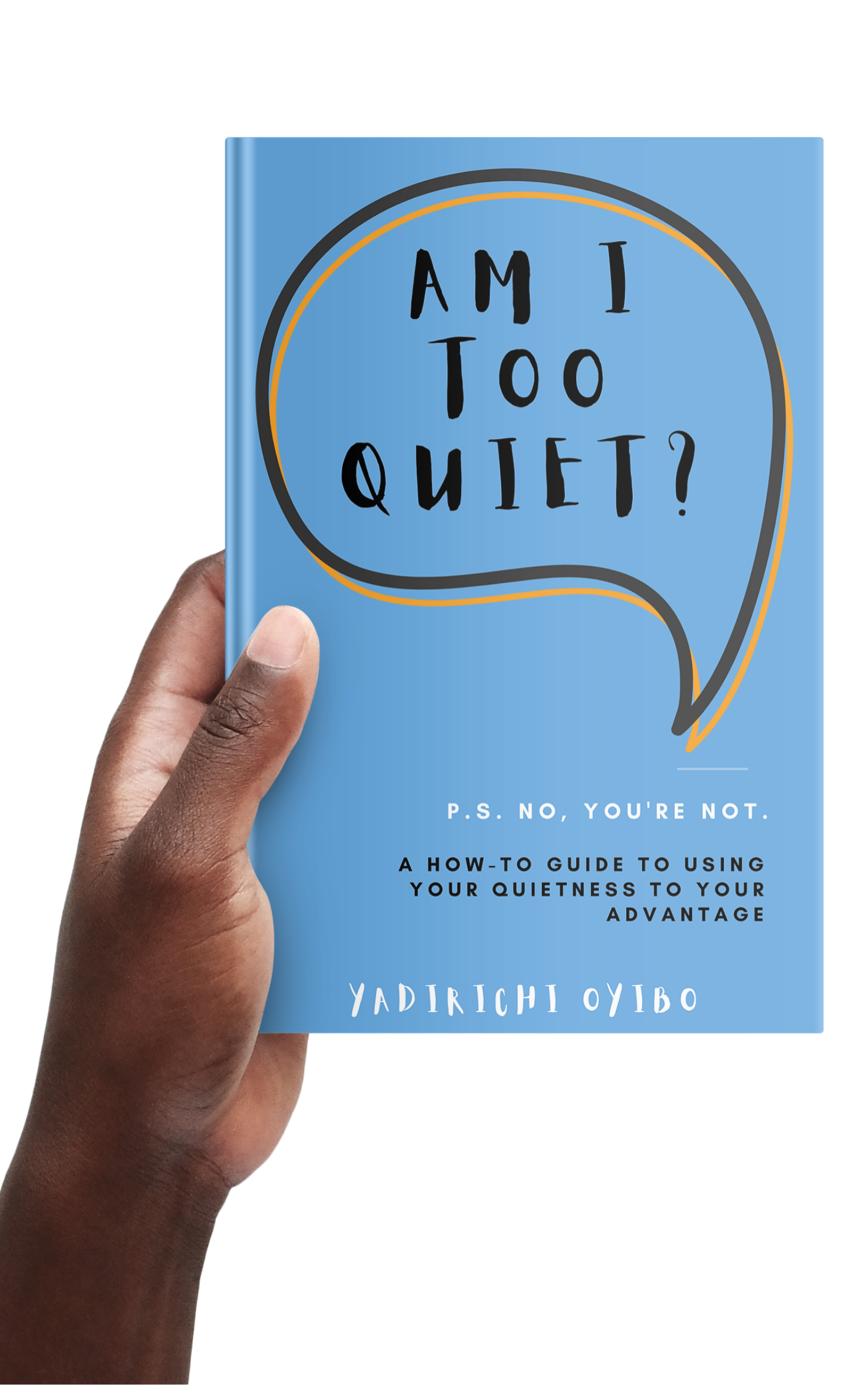From Shy to Confident: How to Help Introvert Personalities Grow
Photo by Christin Noelle on Unsplash
Being an introvert doesn’t have to be an unfortunate fate.
People with introverted personalities often prefer quieter environments because of how their brains are wired.
Research shows that the introvert’s brain is more active than those with other personalities, which is why they might seek out less stimulating environments to balance things out.
However, an introvert’s preference for calmer surroundings might make them more withdrawn, and as a result, less confident in social situations. It might also limit their life experiences, causing them to lose some golden opportunities.
You’ll know you have an introvert personality type if you like spending time alone, you think deeply and get lost in your own world, and people often refer to you as ‘quiet’.
But not all introverts are shy!
It’s important to point out that while introverts might seem withdrawn, not all introverts are shy. Shyness is a feeling of fear or uneasiness caused by being around people or in new environments. Introversion, on the other hand, stems from a preference for quieter settings.
Introverts, however, have a tendency to be shy because of how isolated they can be. They enjoy recharging alone but tend to miss out on some external social developments, especially for extreme introverts.
This highlights the need for introverts to grow their personalities so they can connect with themselves and other people better.
When introverted personalities blossom properly, it helps their self-esteem and self-confidence. The more you understand your personality, you can separate the myths from the truth and feel great about who you are.
Another benefit of self-development for introverts is that it helps with better interactions, both in social and professional settings.
An introverted personality that is well developed will ooze confidence when they step into a room. They know their value, what they can offer, and how to connect with people for the best results.
All these contribute to a more fulfilling personal and professional life for introverts, and that’s what we’ll explore in this article.
We’ll dive into how to make the most of your introverted qualities without changing who you are. If you’re excited to embark on this journey with us, continue reading.
Steps to Help Introvert Personalities Grow
Self-awareness
The first step introvert personalities need to grow is self-awareness. This involves understanding yourself as an introvert, knowing your strengths and weaknesses, and also, what makes you unique.
To begin your journey of self-awareness, you must understand that introversion isn’t a terrible fate. For those asking themselves, ‘Why am I so quiet?’ your journey should start from understanding your personality and correcting any widespread or passed down notion you might have about being an introvert.
After you’ve done this, you can proceed to focus on the unique traits that you have as an introvert that make you an asset wherever you are. Some of these qualities include deep thinking, active listening, and superb observation skills.
Once you’re done grasping more about your introverted nature, the most critical step boils down to understanding yourself. Although introverts have similar traits, we’re all different in our own regard, so you have to understand what works for you specifically. This can be done by being patient and observant with yourself.
Pay attention to how you feel in different situations, your personal strengths and weaknesses, and the areas you need to focus on to grow. This is where the true self-awareness lies.
2. Gradual Exposure to Social Settings
Most introverts love their comfort zones. This is because we feel less stimulated here and our brains can function at their peak without getting drained. However, while the comfort zone is a great place to be, we can’t grow in constant isolation. There are places, people, and experiences vital to our personal and professional growth.
A great chunk of introverts prefer situations to play out on their own, but taking charge and controlling the narratives around your life is paramount. The best way to accomplish this is by creating a structure that allows you to connect with those important to your growth without overstimulating yourself.
You can start with small group activities. Try to connect with at least one close friend every week and have a lunch or coffee break to catch up and exchange profitable ideas. With time, you can schedule networking events that align with your career goals or social gatherings that help you harness your passions and hobbies.
Doing this will ensure you can grow your introverted personality without jeopardizing anything that’s important to your future.
3. Build Communication Skills
Another way to grow as an introvert is through effective communication. This is crucial for both your personal and professional development because the more you can understand others and communicate effectively, you’ll see a drastic change in your relationships.
So, in essence, building your communication skills means better relationships, improved teamwork and collaborations, and better productivity. This will also help you navigate social and professional situations with confidence without you getting a brain drain.
But don’t be nervous. As introverts, we are natural listeners, so you can leverage this to communicate like a pro. Start by listening attentively to what others are saying and showing genuine interest. Next, it’s important to properly articulate your thoughts. Things sound so much better in an introvert’s head, but they can sound adequately good when we say what’s important and structure it properly.
It’s also crucial to psychologically have the assertiveness training. This involves believing in your voice, having confidence in your ideas, and then focusing on sharing them confidently. Practicing also helps in this situation. Rehearse what you want to say beforehand, whether in front of a mirror, with your phone, or with a friend.
4. Set Realistic Goals
When you want to grow as an introvert, it’s very crucial to set goals you can actually achieve. Identify what’s important to you, and focus on those areas one at a time. Instead of overwhelming yourself with multiple goals, concentrate on a few at a time so you can monitor your progress.
This is much easier when you know your areas of weaknesses through self-awareness like we mentioned earlier. Identify your short and long-term goals and create habits that will help you achieve your goals in the time stipulated.
For example, your goal might be to get out of the house more often and see the beauty that the world holds. This can be achievable by choosing to enjoy an outdoor activity once every month. Breaking down this large goal into manageable steps prevents you from feeling overwhelmed and wanting to quit.
It’s also important to celebrate each and every one of your small achievements because let’s be frank, as an introvert who’s taking the time to grow their personality, you deserve all the accolades.
5. Create a Supportive Environment
If you want to grow as an introvert, it starts with you. You need to support yourself by working at your own pace and creating an environment that doesn’t have too much external pressure. It's also crucial to have quiet spaces where you can work, reflect, and recharge. It’s a great way to access your progress and make changes where necessary.
Another vital aspect of creating a supportive environment is surrounding yourself with understanding individuals who respect your introverted nature. This can be a few close friends, family, or an introvert-focused online forum that will help you focus on your progress without tiring you out or pressurizing you.
Reach out and support other introverts, whether at work or online because this will also encourage you to achieve your goals.
Liking this article? Join our Introvert Club→
6. Overcome Challenges
There will be challenges when you’re trying to grow as an introvert.
For starters, your mind might be your greatest antagonist, telling you that you should remain in your comfort zone where it’s supposedly safe. You might also have social anxiety, and feel inferior in social situations.
But remember, overcoming common obstacles as an introvert is not impossible. Introversion isn’t a life sentence where you have to accept the good and bad without figuring out a way to become the best.
There are countless introverts around the world who have become the best versions of themselves by focusing on developing their personalities and leveraging opportunities. You can do the same too.
Start by changing your self-talk into more positive thoughts. Then, adequately prepare for social situations by learning how to initiate conversations and manage small talk. Next, it’s important to create a balance. Manage your energy levels effectively by scheduling quiet time and social interactions. Also, take breaks to recharge when needed.
Lastly, avoid the lone ranger syndrome. Reach out to other introverts in online groups who are going through challenges and encourage them with your unique story. And hey! Always remember that you’re not alone!
Pin this ↓
Over to you…
In conclusion, there are many ways for you as an introvert to grow your personality and become the best version of yourself. It all starts with self-awareness, creating a supportive environment, and overcoming the challenges that come with being an introvert. By following these steps, you will embrace your unique qualities and confidently step into the world. Kindly drop a comment below if you liked this article and share it with other introverts who need to see this.
Live Your Best Quiet Life
Get the Am I Too Quiet? book →














